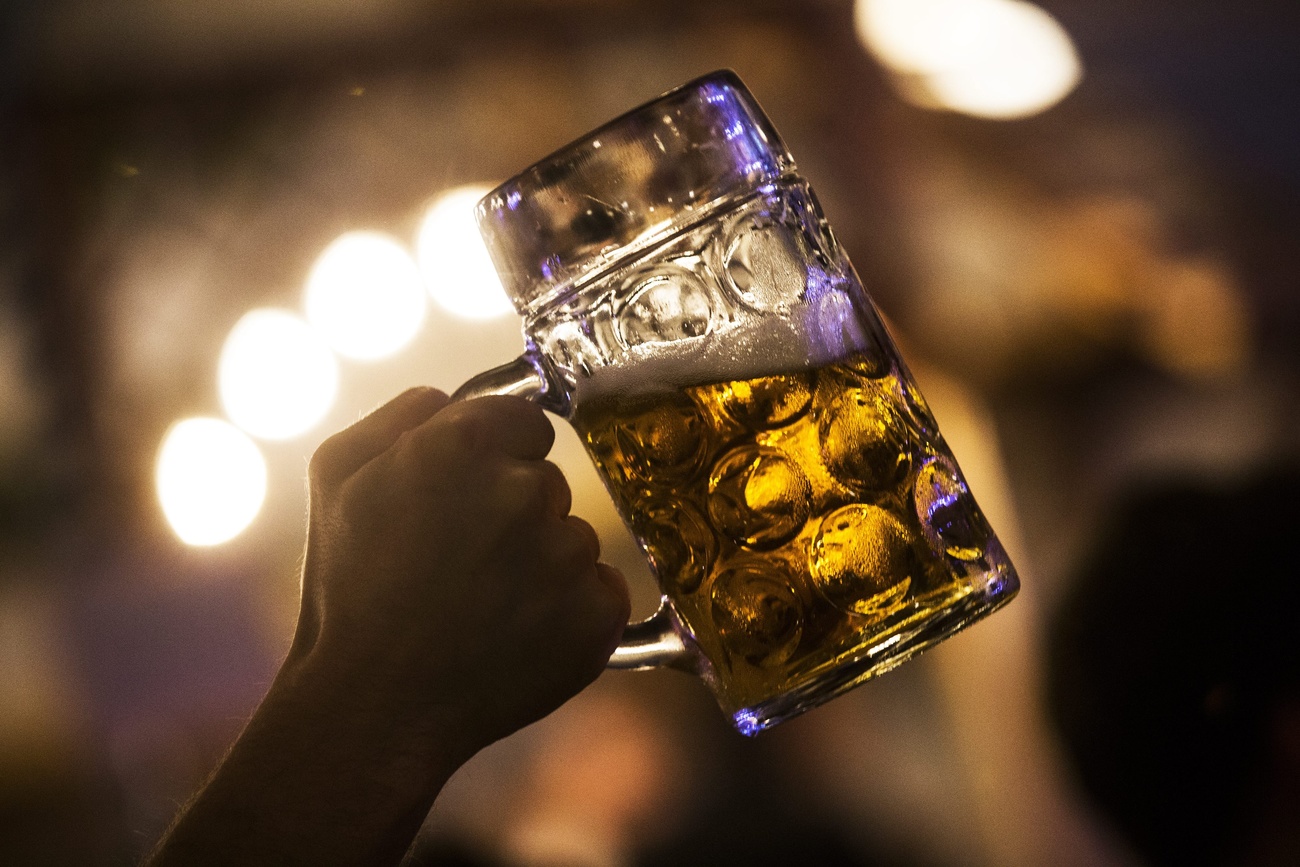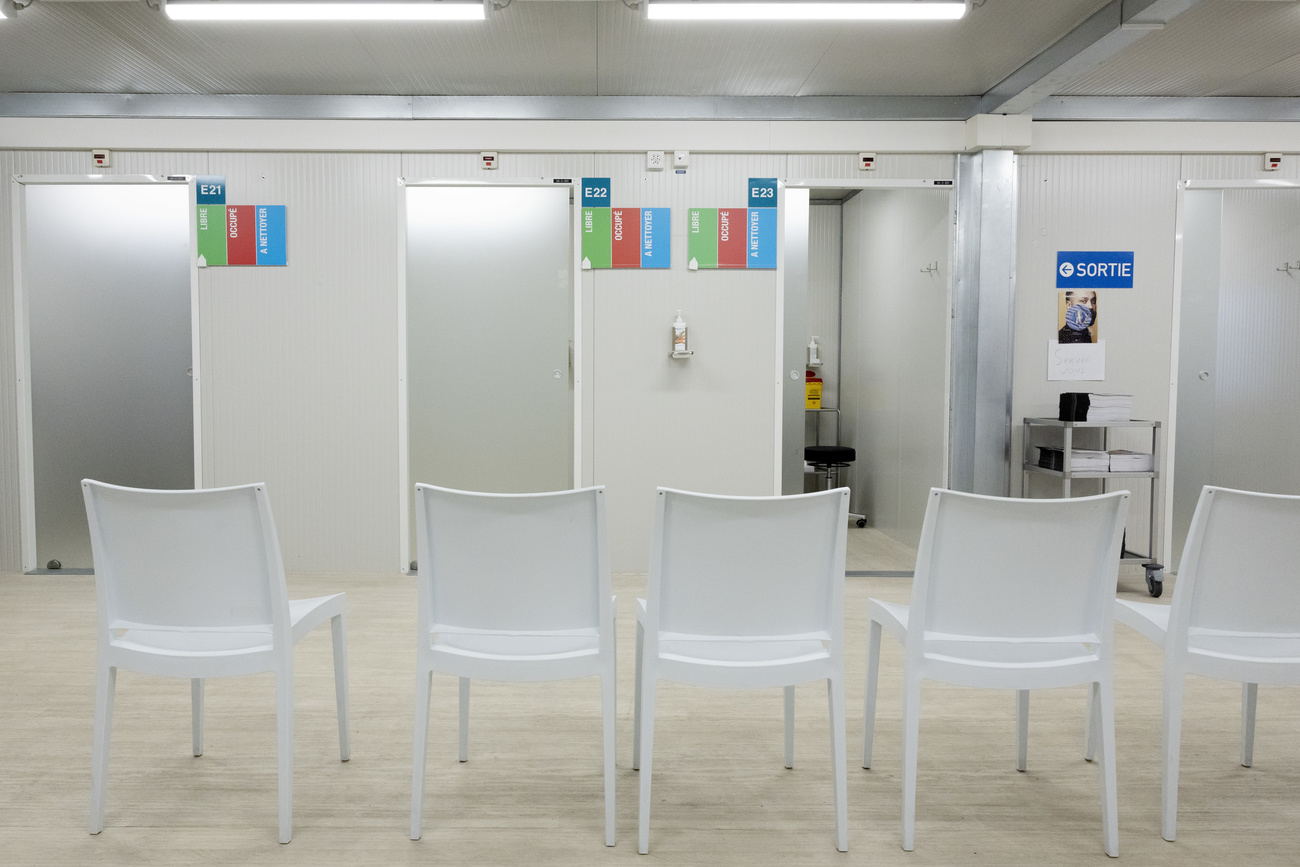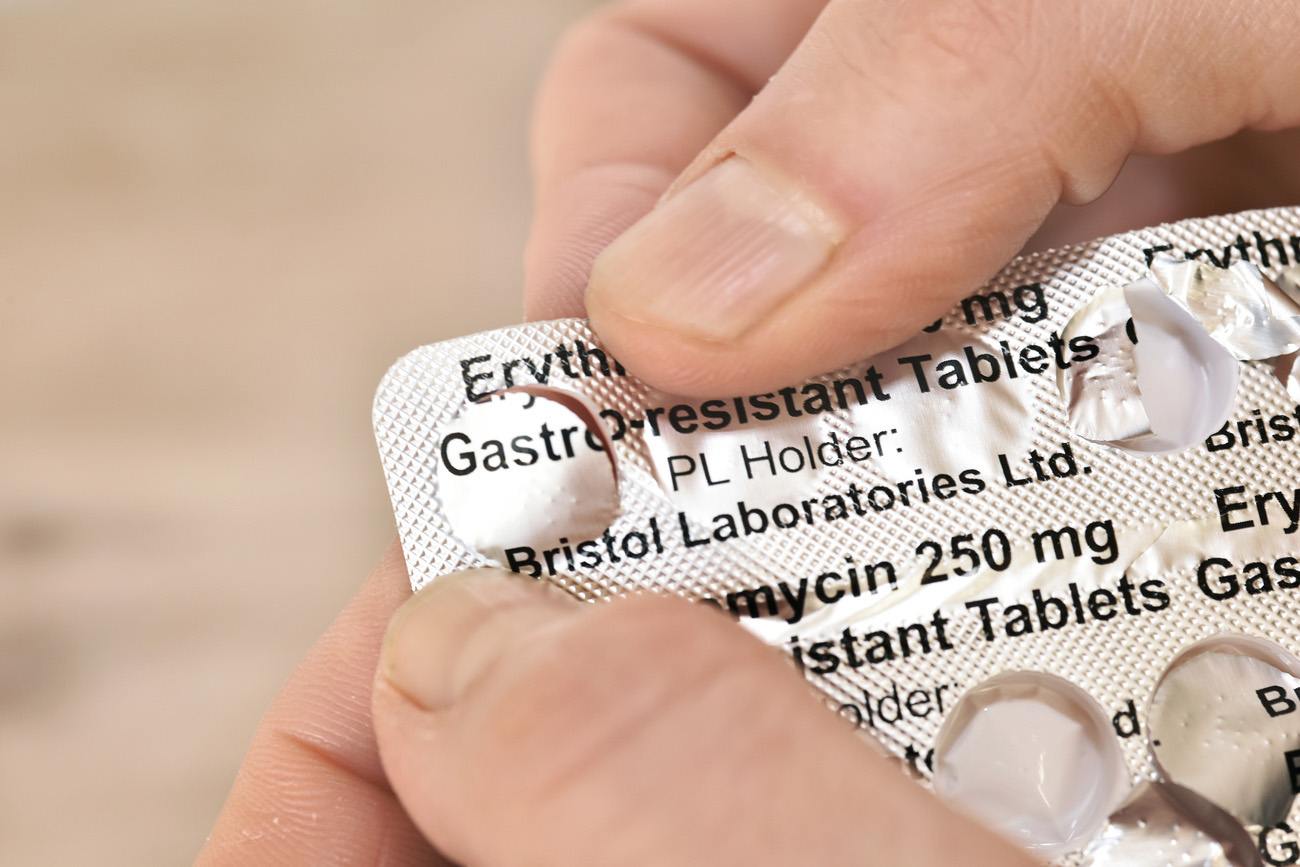
Swiss hospital treats delirious patients with beer

Basel University Hospital is prescribing beer to treat the effects of delirium on intensive patients during a clinical study.
+ Get the most important news from Switzerland in your inbox
Random patients are being given half a litre of wheat beer through a gastric tube every evening for six days. The reasoning is that many people are used to a beer or a glass of wine in the evening as part of their normal daily routine.
“One possible cause of delirium is alcohol, which patients regularly consume in very small quantities. If they no longer get it, they become more susceptible to delirium,” Martin Siegemund, head physician of the hospital’s intensive care unit, told Swiss public broadcaster SRF.
Delirium is a state of confusion experienced by many intensive care patients and which creates stress.
“Patients are confused. They no longer know where they are. For example they can thinks they are in Paris or want to see their children even though they don’t have any,” said Siegemund.
Consent consideration
This situation is also a big challenge for the nursing staff and relatives. Saff have little choice but to try to talk to the patient in a friendly way, but this cannot prevent delirium.
That’s why Siegemund goes a step further and uses an unusual method. In a study, randomly selected patients are given half a litre of wheat beer through a gastric tube every evening for six days. Other patients are given only water. This allows the two groups to be compared.
The question of patient consent has been considered, particularly as some are unconscious.
“In rare cases, we can ask intensive care patients that come to us in emergencies. There is a paragraph in the research law that then allows us to conduct such a study,” said Siegemund.
Certain patients, such pregnant women or people who previously had an alcohol problem or who are not allowed to consume alcohol for religious reasons, are excluded from the research.
Some scepticism
Around 40% of patients in the emergency department suffer from delirium. There are hardly any drug treatment options, however. This is why the study in Basel is being followed with interest by experts.
Wolfgang Hasemann, head of the Basel Dementia Delirium Program at the Felix Platter Hospital, is following the experiment with interest: “The study is very interesting and I am excited about the results because it fills a gap in knowledge. We do not know how alcohol affects delirium.” However, Hasemann stresses that he is also sceptical.
Alcohol can also cause delirium. It would also make more sense to conduct a study only with patients who are known to have an alcohol problem. “But the results will show us who is right: the study or my skepticism,” says the delirium specialist.
The study at Basel University Hospital is expected to last until 2027. The first results are not expected for at least a year.
Adapted from German by DeepL/mga
This news story has been written and carefully fact-checked by an external editorial team. At SWI swissinfo.ch we select the most relevant news for an international audience and use automatic translation tools such as DeepL to translate it into English. Providing you with automatically translated news gives us the time to write more in-depth articles.
If you want to know more about how we work, have a look here, if you want to learn more about how we use technology, click here, and if you have feedback on this news story please write to english@swissinfo.ch.

In compliance with the JTI standards
More: SWI swissinfo.ch certified by the Journalism Trust Initiative





































You can find an overview of ongoing debates with our journalists here . Please join us!
If you want to start a conversation about a topic raised in this article or want to report factual errors, email us at english@swissinfo.ch.